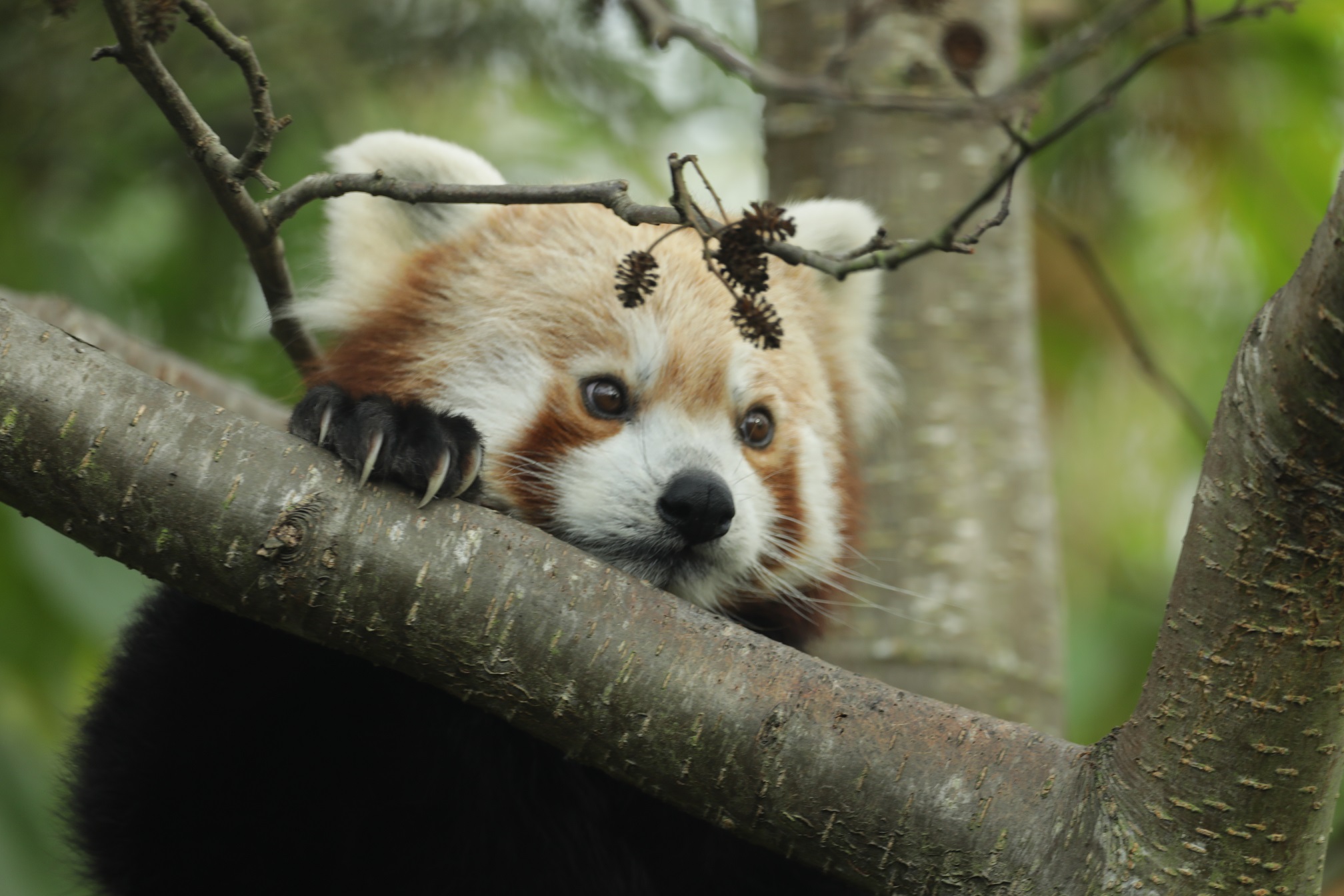Dark bordered beauty moth

Invertebrates are crucial to our ecosystems and at RZSS we are determined to stand up for the little guys. Dark bordered beauty moths (Epione vespertaria) are currently found in just two sites in Scotland and one in England. To help boost the wild population, our charity is undertaking a conservation breeding programme for this species.
Dark bordered beauty moths in Scotland are reliant on aspen suckers, which can require complex management to protect. In the wild, sites with suitable habitat are fragmented and spaced out so the moths are not currently able to disperse to new sites themselves. The breeding programme aims to breed enough moths to release them into new, suitable habitats.
This is the first large scale breeding attempt for this species. Like many invertebrates, dark bordered beauty moths have several distinct life stages, each with their own feeding and habitat requirements. To breed the species successfully, we must make sure that the egg, caterpillar, pupa and adult moth stage are all well-catered for.
To help us achieve this, we have constructed a purpose-built facility at Highland Wildlife Park with different types of housing for each life stage. As very little is known about the species, close monitoring by our expert team is providing an opportunity for new insight into the species’ reproductive and ecological behaviours.
Meanwhile, our partners at Rare Invertebrates in the Cairngorms have been undertaking surveys to find new sites of suckering aspen and working with landowners to try and help create better habitat for the moths to be released into.
Our Partners and Funders
Project type

Conservation translocation
The team
Project updates
Date: April 2024
We participated in the first ever release of threatened dark bordered beauty moth eggs! 750 eggs were released into a specially selected site in the Cairngorms National Park as part of the Rare Invertebrates in the Cairngorms (RIC) partnership work. We’ll be repeating the process with another 750 eggs right before they start hatching in May.

Relevant news
Ways you can support
/icas anteater 2.jpg)
Become a Conservation Champion
Conservation Champions are helping to save 50 of the world's most endangered species from extinction. Give from £1 a week to £1 a day and join a growing group of caring people like you, committed to saving animals in danger.

Connect your business to nature
You can get involved in our work via corporate partnerships, corporate sponsorships, exclusive volunteering opportunities, in-kind gifts and much more. Being a corporate partner is a unique path to meeting your business and corporate social responsibility needs.
.jpg)
Join RZSS as a member
RZSS membership provides much more than just free entry to Edinburgh Zoo and Highland Wildlife Park. Your membership helps support our charity's conservation work around the world.

















/giant_armadillo_pantanal.jpg)

